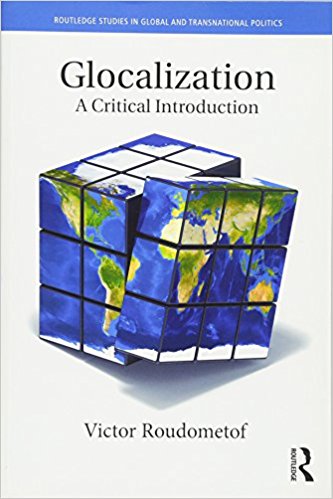Nationalism, Globalization and Orthodoxy

Full title: Nationalism, Globalization and Orthodoxy: The Social Origins of Ethnic Conflict in the Balkans (Westport, CT: Greenwood, 2001).
World History, Contributions to the Study of, No. 89 (ISSN: 0885-9159) Greenwood Press. Westport, Conn. 2001, Pages LC 00-069154. ISBN 0-313-31949-9. GM1949.
Nationalism, Globalization, and Orthodoxy: The Social Origins of Ethnic Conflict in the Balkans (Camden: Bloomsbury 2024) 320 pp., paperback.
Brief description
Roudometof provides an in-depth sociological analysis of the birth and historical evolution of nationalism in the Balkans. The rise of nationalism in the region is viewed as part of a world-historical process of globalization over the last five centuries. With the growing contacts between the Ottoman Empire and the Western European system, the Eastern Orthodox of the Balkans abandoned the enthoconfessional system of social organization in favor of secular national identities. Prior to 1820, local nationalism was influenced by the Enlightenment, though later it came to be developed on an "ethnonational" basis. In the post-1830 Balkans, citizenship rights were subordinated to ethnic nationalism, according to which membership to a nation is accorded on the basis of church affiliation and ethnicity. In the nineteenth and twentieth centuries, the discourse of nationhood was institutionalized by the native intelligentsia of the Balkan states. In the first half of the twentieth century, the efforts of Balkan states to achieve national homogenization produced interstate rivalry, forced population exchanges, and discrimination against minority groups. While the Cold War helped contain some of these problems, the post-1989 period has seen a return of these issues to the forefront of the Balkan political agenda.
Link to amazon.com to glance inside the book and get additional information.
Click here for pre-publication endorsements and sample book reviews.
Reviews have appeared in the following Journals:
- Southeast European and Black Sea Studies Vol. 4, No. 3, pp. 516-536, September 2004 (Basil C. Gounaris)
- Journal of Southern Europe and the Balkans, Volume 5, Number 1, 2003 (Effi Fokas)
- Mediterranean Quarterly, Volume 14, Number 3, pp. 125-127, summer 2003 (Filip Kovacevic)
- East European Politics and Societies Vol. 17, No. 2, pp. 342-347, spring 2003 (Vladimir Solonari)
- International Affairs, vol. 78, no. 4, pp. 906-907, October 2002 (Alex J. Bellamy)
- Nations and Nationalism, vol. 8, no. 4, pp. 569-570, October 2002 (Tom Gallagher)







